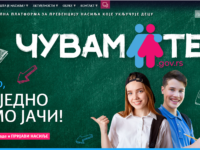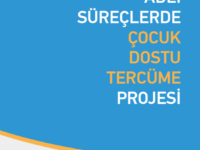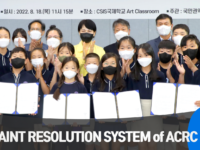„Gemeinsam Digital: Berlin“(Together Digital: Berlin) combines the digital and smart city strategies. We define smart as solving future challenges in creative, open, experimental and participatory ways. This strategy helps to establish new work approaches, agile methods, competence building, and a systematic knowledge transfer between the administration and its inhabitants. By aligning technologies, methods, and cultural processes, it supports existing strategies to reach their respective…
Innovation Tag: Citizen Engagement
The project is aimed to prevent the loss of the rights of refugee children in Türkiye due to language and translation difficulties in judicial processes. Children involved in judicial processes, translators, judges-prosecutors and other auxiliary judicial staff have benefited very much from the project. For the first time, the capacity of translators has been strengthened and the secondary trauma risks of children have been mimized.
Case Study
A National platform for the prevention of violence that involves children “I protect you”

Online platform “I protect you” enables a centralised approach to combating violence. It encompasses work of 7 ministries in one national online platform and improves access to information, training, as well as prevention and intervention tools. By integrating all aspects of prevention and tools for combating violence, it raises the capacity of children, teachers, parents through specifically designed free online training, as well as institutions to recognize and quickly address violence.
South Korea’s National Ombudsman Institution, Anti-Corruption and Civil Rights Commission (ACRC) is the only public agency in the country that handles all civil collective complaints against governments. ACRC’s collective complaint resolution effectively coordinates and mediates complicate large-scale complaints and suggests alternatives agreed by all parties. The system protects citizens from the infringement of rights and interests and prevents the occurrence of social conflicts.
IQed (Inquiries/Questions in education) utilizes cutting-edge Democratic Technology in classrooms for the purpose of empowering students and educators in Digital Literacy, Civic Literacy, Dynamic Engagement, Critical Thinking/Problem-Solving Skills and Global Competency Education. IQed enables every student to use their personal devices to explore, investigate and become informed on issues of governance and global matters, so that their voice can positively impact local and global communities.
Together with partners from 5 other European countries, the Province of Fryslân developed an innovation model (so-called Tipping Approach) to catalyse and stimulate bottom-up innovations and harness ideas from local stakeholders. Complementing this, a governance model is being developed to provide civil servants with tools to implement these innovations in the social process in a simple and user-friendly way.
The AJSC has developed a new model to measure the determinants of the ‘quality of life’ in Ajman, covering six key areas of public service. The Model comprises a comprehensive factor measurement framework embedded on a sophisticated web-based application, with inbuilt protocols for scientific data collection, project management, data visualization and reporting. It systematically measures gaps and impact of interventions, via targeted performance assessment of framework factors.
Nova Scotia has 21 Community Transportation Operators serving mainly vulnerable populations in rural areas. The CTOs were unable to feasibly procure a common dispatch and scheduling solution that met their needs, leaving them with inefficiencies and inability to meet growing needs. The Outpost for Public Sector Innovation designed a new approach to co-designing and procuring solutions to complex challenges. Together with stakeholders, partners and vendors, two viable solutions were developed.
Plastics used in ships are occasionally dumped at ocean, or even if they are collected at ports, all of them are incinerated. YGPA crack down on plastic dumping at ocean and collect waste plastics from ships. And the plastics are processed into recycled polyester yarn. Since this yarn is made of ocean bound plastic, apparel makers rush to buy the yarn and make clothes with it. Through this project, we protect the environment and create added values and jobs in the process of recycling plastics.
Over 3 million citizens annually visited government offices in Delhi for various transport services. To reduce interference of middleman, application pendency and physical exposure in view of ongoing Covid-19 pandemic, faceless services have been launched to offer transport services to citizens at the comfort of their home. Using AI, e-sign, biometric-based authentication and institutional restructuring, faceless services provide hassle-free contactless services to citizens.



